Tomb 19
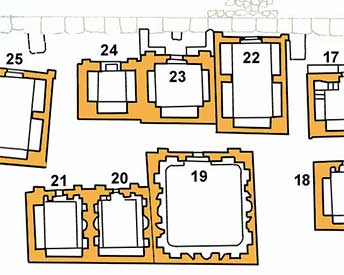 When tomb 19 was erected in approximately 145 AD, it was freestanding and looked out over the Via Severiana. Shortly after that the smaller tombs 20 and 21 were built alongside.
When tomb 19 was erected in approximately 145 AD, it was freestanding and looked out over the Via Severiana. Shortly after that the smaller tombs 20 and 21 were built alongside.
After the construction of tombs 22, 23 and 24 later on, the main road was no longer visible from tomb 19.
The grave itself has been built with small bricks: red on the front side and yellow in the back and side walls.
From the inscription, which was once accompanied by two terra-cotta reliefs, only the cornice has been preserved.
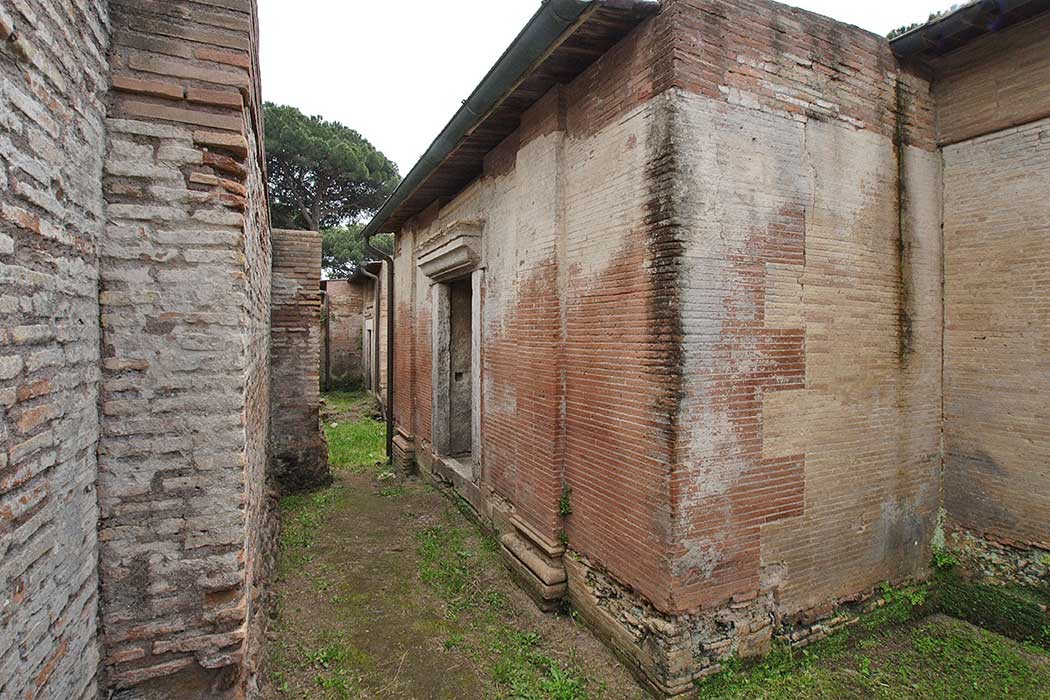
The burial chamber (4,29 x 4,12) was particularly well decorated. In each wall is a central niche flanked by columns and two rows of smaller niches. The entrance wall was also used and equipped with niches.
Beneath the floor, which is not preserved, 6 formae have been located.
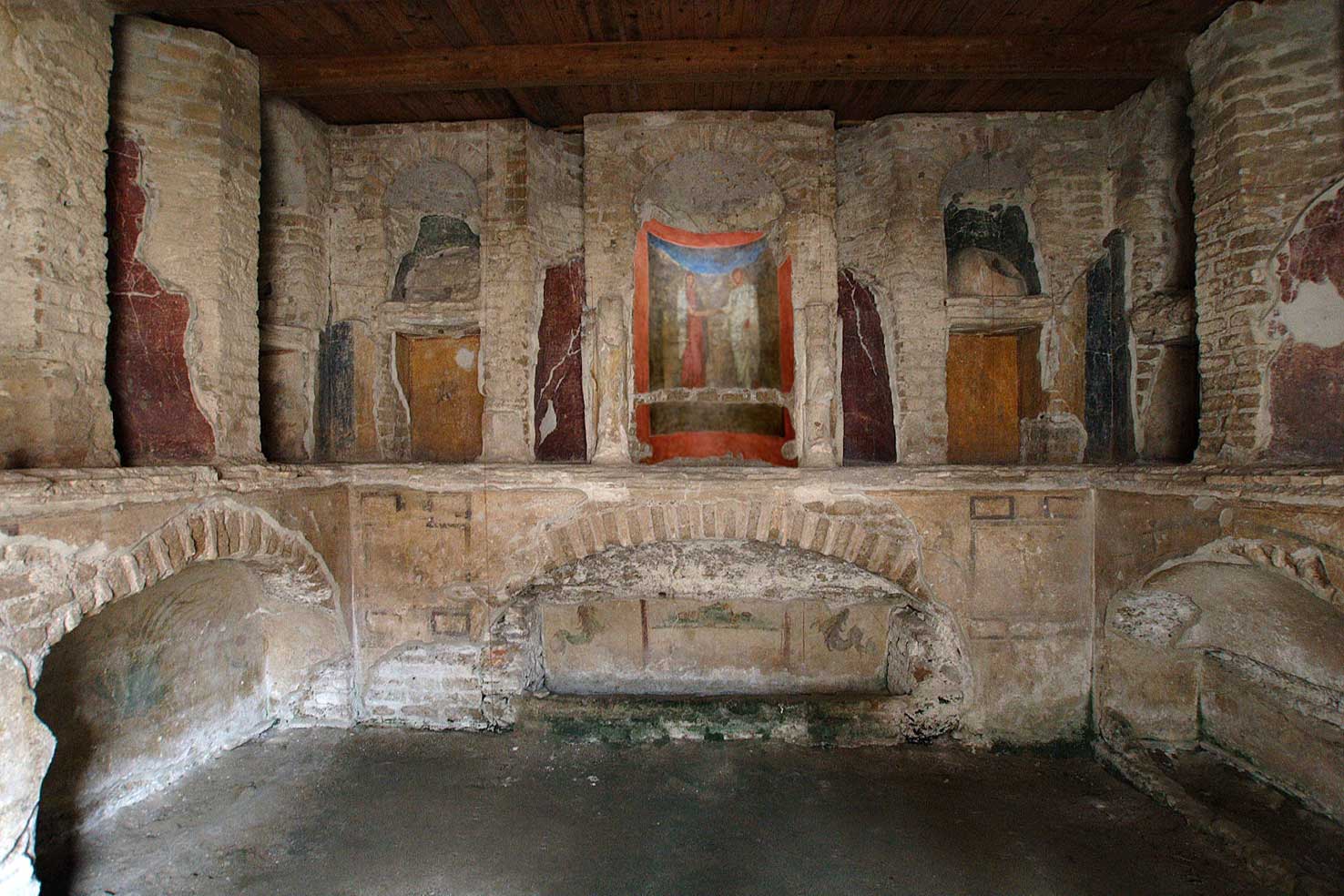
In the central niche of the back wall was a portrait of a married couple1 (now in the museum of Ostia, inv. nr. 10817). Especially the head of the woman has been preserved well. She is wearing a red dress and has a hairstyle from the time of Antoninus Pius.
Furthermore we can see paintings of satyrs with goat legs in several niches and garlands.
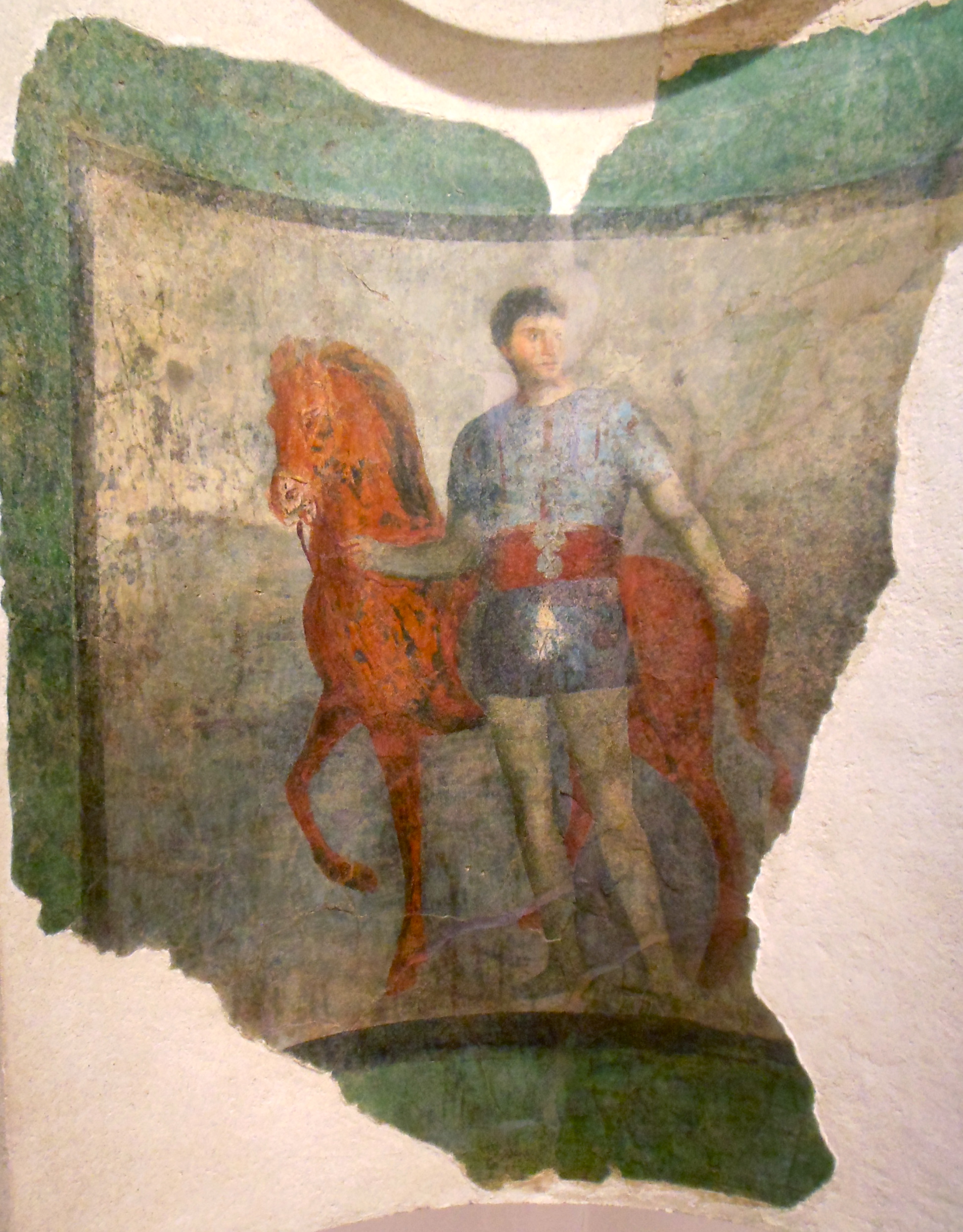
Two inscriptions have been found in the tomb, the first one on a memorial tablet (inv. nr. 11262), the second on an urn (inv. nr. 1336).
D(is) M(anibus)
C(ai) TORQVATI C(ai) F(ili)
QVIR(ina) NOVELLI
SENIORIS
VIXIT
ANN(is) LXXVI
MENS(ibus) II DIEB(us) XII
D(is) M(anibus)
L(uci) TORQVATI C(ai) F(ili)
QVIR(ina) NOVELLI
VIX(it) A(nnis) XXIII M(ensibus) III
D(iebus) XVI
Caius Torquatius Novellus, senior, son of Caius, of the tribus Quirina, passed away at the age of 76 years, 2 months and 12 days.
His son Lucius Torquatius Novellus died at the age of 23 years, 3 months and 16 days.
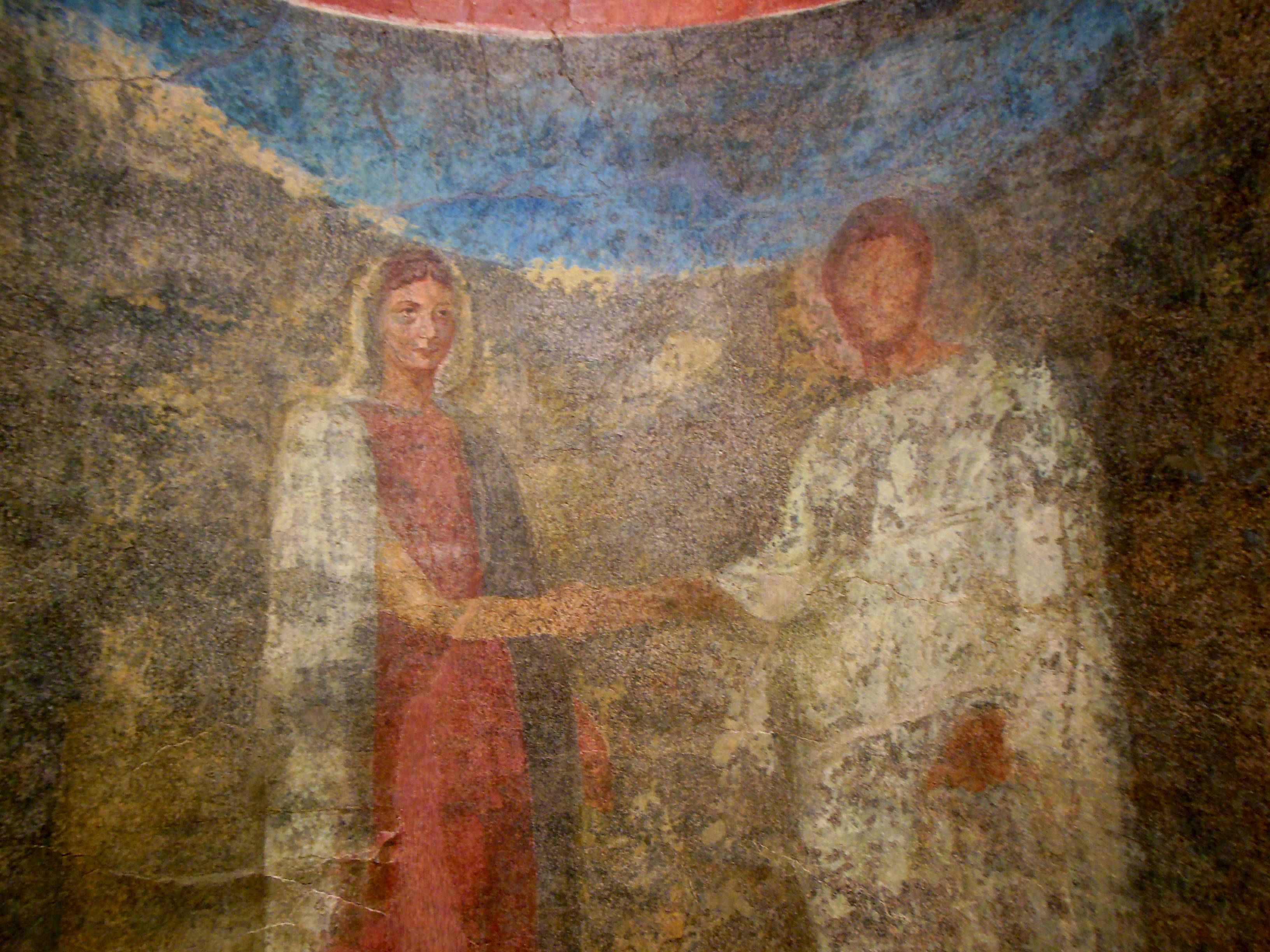
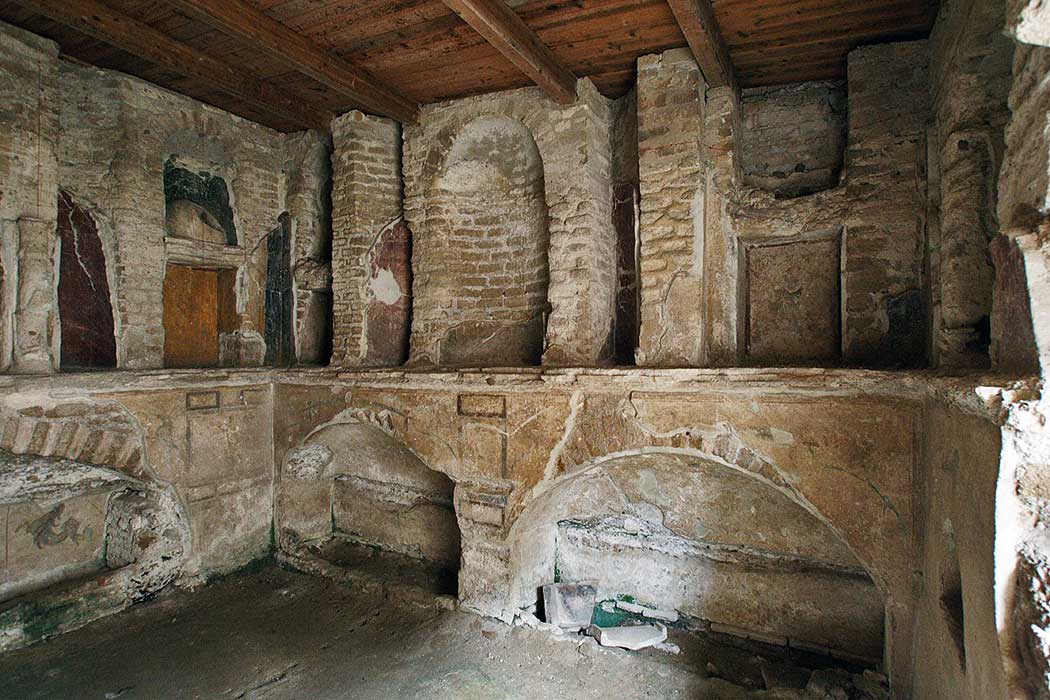
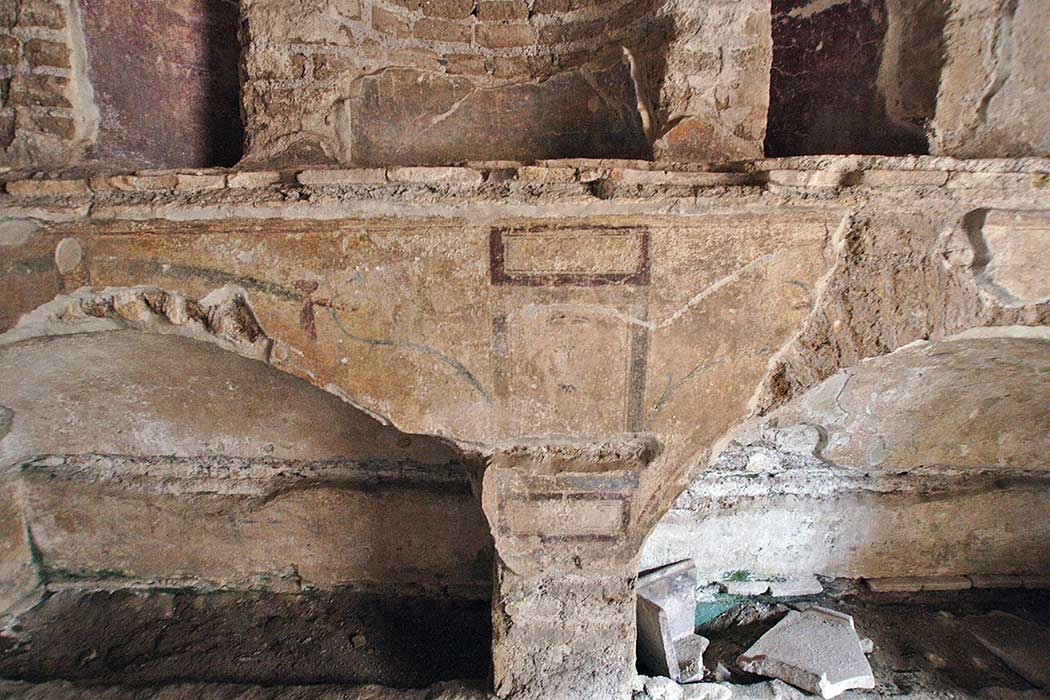
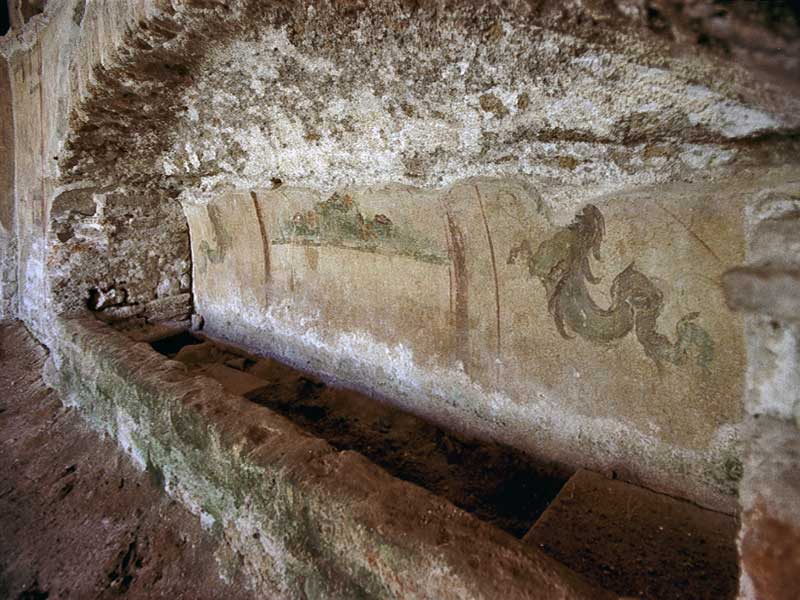
- Sources
- Russel Meigs - Roman Ostia, At the Clarendon Press 1973
- Guido Calza - Necropoli nell'Isola Sacra'(1940)
- Dr. Jan Theo Bakker.
- Hilding Thylander - Inscriptions du port d'Ostie (Lund C W K Gleerup 1952).
- Ida Baldassarre, Irene Bragantini, Chiara Morselli and Franc Taglietti - Necropoli di Porto, Isola Sacra (Roma 1996).
- Notes
- 1:According to Ida Baldassarre the elder gentleman should be the husband of the married couple and the young deceased, the horseman. She points also to the name of the family of Quirina, which tells us that we have to do with a family of freedmen. In that case the young man could not be a charioteer. Therefore the painting is meant perhaps synbolically as a victory over the death. I, Baldassarre, I. Bragantini, Ch. Morselli and F. Taglietti: “Necropoli di Porto” 1996
Isola Sacra Index (F)

Section spéciale consacrée au cimetière romain de Portus (en anglais)....
Lire la suite...Leptiminus (Anglais)
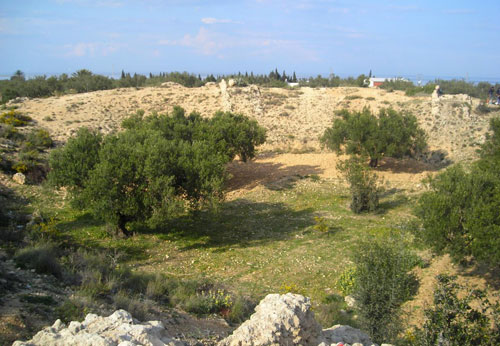
At the site of present-day Lamta on Tunisia's east coast, there was already a port city named Leptis Minor ....
Lire la suite...Droit romain du commerce maritime(Anglais)

Roman law is the finest monument that Rome bequeathed to Western Europe....
Lire la suite...Sullecthum (Salakta) Anglais

In the Sahel, in the Tunisian province of Madhia, we find by the sea the small town of Salakta....
Lire la suite...Colonia Julia ad Turrem Libisonis (Anglais)

.....probably founded by Julius Ceasar around 46 BC, was located in the north-west of Sardinia.
Lire la suite...
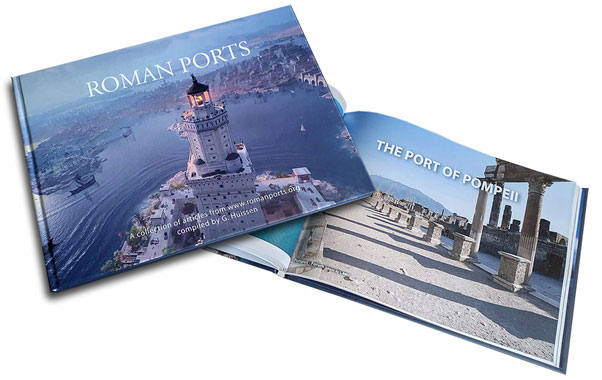
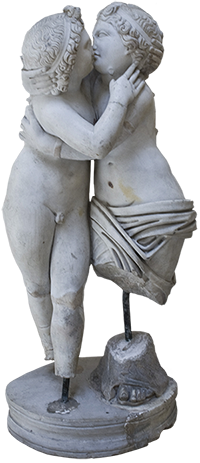 We are committed to providing versions of our articles and interviews in several languages, but our first language is English.
We are committed to providing versions of our articles and interviews in several languages, but our first language is English.